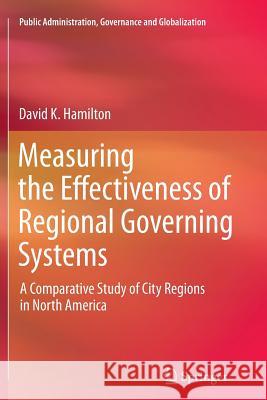Measuring the Effectiveness of Regional Governing Systems: A Comparative Study of City Regions in North America » książka
Measuring the Effectiveness of Regional Governing Systems: A Comparative Study of City Regions in North America
ISBN-13: 9781493902156 / Angielski / Miękka / 2014 / 192 str.
Measuring the Effectiveness of Regional Governing Systems: A Comparative Study of City Regions in North America
ISBN-13: 9781493902156 / Angielski / Miękka / 2014 / 192 str.
(netto: 364,61 VAT: 5%)
Najniższa cena z 30 dni: 382,84 zł
ok. 20 dni roboczych.
Darmowa dostawa!
Regional governance is a topical public policy issue and is receiving increased attention from scholars, government officials and civic leaders. As countries continue to urbanize and centralize economic functions and population in metropolitan regions, the traditional governing system is not equipped to handle policy issues that spill over local government boundaries. Governments have utilized four basic approaches to address the regional governing problem: consolidating governments, adding a regional tier, creating regional special districts, and functional cooperative approaches. The first two are structural approaches that require major (radical) changes to the governing system. The latter two are governance approaches that contemplate marginal changes to the existing governance structure and rely generally on cooperation with other governments and collaboration with the nongovernmental sector. Canada and the United States have experimented with these basic forms of regional governance. This book is a systematic analysis of these basic forms as they have been experienced by North American cities. Utilizing cases from Canada and the United States, the book provides an in-depth analysis of the pros and cons of each approach to regional governance. This research provides an additional perspective on Canadian and U.S. regional governance and adds to the knowledge of Canadian and United States governing systems. This study contributes to the literature on the various approaches to regional governance as well as bringing together the most current literature on regional governance. The author develops a framework of the values that a regional governing system should provide and measures to assess how well each basic approach achieves these values. Based on this assessment, he suggests an approach to regional governance for North American metropolitan areas that best achieves these values.











